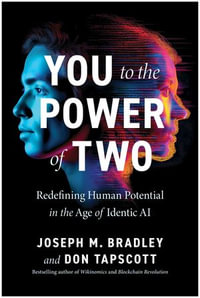Explore reusable design patterns, including data-centric approaches, model development, model fine-tuning, and RAG for LLM application development and advanced prompting techniques
Free with your book: PDF Copy, AI Assistant, and Next-Gen Reader
Key Features
- Learn comprehensive LLM development, including data prep, training pipelines, and optimization
- Explore advanced prompting techniques, such as chain-of-thought, tree-of-thought, RAG, and AI agents
- Implement evaluation metrics, interpretability, and bias detection for fair, reliable models
Book Description
This practical guide for AI professionals enables you to build on the power of design patterns to develop robust, scalable, and efficient large language models (LLMs). Written by a global AI expert and popular author driving standards and innovation in Generative AI, security, and strategy, this book covers the end-to-end lifecycle of LLM development and introduces reusable architectural and engineering solutions to common challenges in data handling, model training, evaluation, and deployment.
You'll learn to clean, augment, and annotate large-scale datasets, architect modular training pipelines, and optimize models using hyperparameter tuning, pruning, and quantization. The chapters help you explore regularization, checkpointing, fine-tuning, and advanced prompting methods, such as reason-and-act, as well as implement reflection, multi-step reasoning, and tool use for intelligent task completion. The book also highlights Retrieval-Augmented Generation (RAG), graph-based retrieval, interpretability, fairness, and RLHF, culminating in the creation of agentic LLM systems.
By the end of this book, you'll be equipped with the knowledge and tools to build next-generation LLMs that are adaptable, efficient, safe, and aligned with human values.
What you will learn
- Implement efficient data prep techniques, including cleaning and augmentation
- Design scalable training pipelines with tuning, regularization, and checkpointing
- Optimize LLMs via pruning, quantization, and fine-tuning
- Evaluate models with metrics, cross-validation, and interpretability
- Understand fairness and detect bias in outputs
- Develop RLHF strategies to build secure, agentic AI systems
Who this book is for
This book is essential for AI engineers, architects, data scientists, and software engineers responsible for developing and deploying AI systems powered by large language models. A basic understanding of machine learning concepts and experience in Python programming is a must.

























